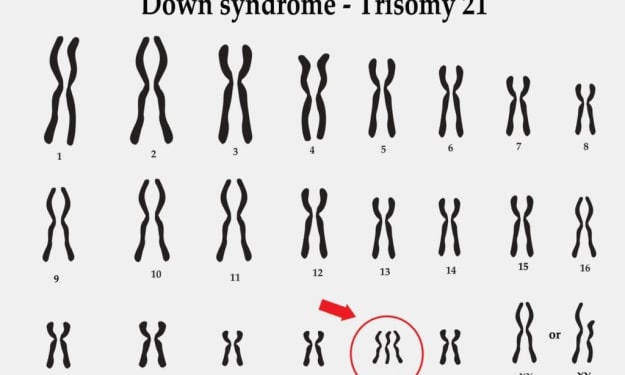How Do Dental Probiotics Work?
Learn about dental probiotics.

Dental probiotics help maintain a healthy oral flora, or good bacteria. Because the mouth is a hostile environment for bacteria, it often leads to plaque (a biofilm) formation. This plaque forms a home for bacteria. When the oral flora is healthy, the bacteria that make up the biofilm remain in balance. If the balance becomes imbalanced, unhealthy bacteria will begin to overtake the healthy probiotics. This can happen in the folds of the tongue or pockets of the gums.
Good bacteria
Dental probiotics replenish good bacteria in the mouth. They fight bad breath, reduce the risk of periodontitis, and prevent tooth decay. But how do they work? The good bacteria in dental probiotics bind with bacteria and compete for space and nutrients. They are then taken orally to maintain good oral health. In fact, there is even some research that shows that good bacteria can reduce the risk of cavities in children.
Studies have shown that dental probiotics are effective in restoring the balance of the oral microbiome. These probiotics work by promoting the growth of beneficial bacteria and reducing the activity of harmful bacteria. They reduce levels of S. mutans, a bacterium that promotes gum disease and is associated with tooth decay. These oral probiotics also decrease the production of volatile sulphur compounds, which are responsible for gum bleeding and tooth decay.
Dental probiotics contain specific strains of bacteria that can improve the condition of your oral health. They also combat plaque and other oral health problems by supporting the growth of good bacteria in the mouth. This will prevent harmful bacteria from multiplying. These bacteria are also effective in fighting cavities. But they can't eliminate them completely. In addition to improving oral health, dental probiotics can also prevent and treat some types of oral cancer and respiratory infections. The good bacteria in dental probiotics fight the growth of harmful bacteria and reduce bad breath.
Although dental probiotics don't need to be studied like prescription medicines, you should always check with your dentist before buying them. Choose a trusted brand and go with their recommendation. A dental probiotic supplement will help your gut health and boost your immune system. You may also be at risk for a weakened immune system. But there is good news! Dental probiotics are a great way to improve your health and reduce the risk of gum disease and dental decay.
If you're suffering from bad breath, a daily dose of dental probiotics will help you reduce the amount of harmful bacteria in your mouth. In fact, they can reduce VSC in 85 percent of test subjects after just one week. And they also reduce the risk of pharyngitis and gingivitis, as well as dental decay. That means oral probiotics can prevent bad breath and prevent more serious diseases.
Sources
The oral microbiome is a living organism that contains trillions of bacteria that colonize the mouth. These bacteria then migrate to the gut, where they influence our overall health. Proper oral hygiene is critical in ensuring a healthy microbiome. The good bacteria in oral probiotics form biofilms on the teeth, where they replace the bad bacteria and promote a healthy microbial population. They also help reduce inflammation and block the bad bacteria from reaching the tooth enamel.
Probiotics are beneficial for the human gut, and many studies have shown that they can also improve oral health. In fact, the first study of dental probiotics showed that the number of common oral pathogens decreased significantly when patients took a probiotic supplement. The two major oral pathogens that the bacteria fought were Streptococcus mutans and Candida albicans. The researchers from Moscow found that oral probiotics significantly reduced plaque buildup in patients who were taking a high-dose of these bacteria.
A 12 strain of oral bacteria is particularly beneficial for improving oral health because it fights the bacteria responsible for cavities. Bacteria clusters in the mouth cause an acidic environment that breaks down the enamel and causes tooth decay. This bacteria helps to prevent plaque from forming, while Streptococcus salivarius is good for fighting bad breath and fights gingivitis, periodontitis, and dental caries.
A variety of foods that are beneficial to the oral health include yogurt, cultured cottage cheese, and kefir. Yogurt, kefir, and buttermilk are sources of probiotics. In a study of 694 children, those who consumed Lactobacillus-containing dairy products had lower levels of S. mutans bacteria in their saliva than those who did not drink milk products. Proper oral hygiene and twice-yearly dental checkups are crucial to maintain a healthy mouth and gums.
Studies have shown that oral probiotics may improve the symptoms of gingivitis. The bacteria present in oral probiotics reduce gum inflammation and stop bleeding. They may also help prevent oral diseases, such as periodontitis, which is a chronic infection of the gum tissues. Although teeth are healthy when gingivitis is present, it can cause bleeding during brushing or flossing. It is also a sign of other issues that affect oral health, including heart disease and diabetes.
Benefits
Dental probiotics are beneficial for your oral health because they can inhibit pathogens, boost your immune system, and promote optimal pH levels in the mouth. These bacteria not only benefit your mouth, but also your body as a whole. In fact, studies have shown that a healthy oral microbiome promotes general health and prevents a variety of diseases. The Luvbiotics range of probiotic supplements, developed by scientists and a leading research institute, is a great way to get these benefits.
The oral probiotic strains found in Replenish The Good Dental Probiotic include K12, S. salivarius M18, and L. reuteri. The M18 strains have been shown to inhibit the production of the inflammatory cytokine IL-6 and IL-8 in the mouth, two factors known to contribute to dental decay. The M18 strain is also known for its ability to reduce the risk of gingivitis.
The beneficial bacteria present in dental probiotics are essential for oral health. They can help reduce the production of sulfur compounds that are associated with bad breath. They can also prevent the onset of oral cancer. Moreover, they can reduce inflammation and other negative effects of pathogens. However, not all oral probiotics are created equal. Physiological, microbiologic, and location of isolation determine the clinical effect of different strains.
Researchers have reported that the oral probiotic Lactobacillus reuteri significantly decreased the risk of gingivitis. Moreover, it inhibited the development of oral cancer in rats. In a similar study, two strains of L. reuteri were taken by 42 healthy adults with gingivitis. BOP, GCF, and pro-inflammatory cytokines all decreased. The researchers concluded that dental probiotics are safe, but cautioned people with compromised immune systems should avoid taking high doses of oral probiotics.
While dental probiotics are not currently available in drugstores, it is safe to buy them online or from manufacturers. However, the most recent study suggests that they are safe to use. It is not recommended for people with an imminent risk of infection, or who have certain medical conditions, such as diabetes. For the same reason, dentists should avoid giving probiotics to patients with certain special needs or with other medical conditions.
Side effects
The use of dental probiotics can prevent the growth of candida fungus, which is known to cause oral thrush. The probiotics, especially Lactobacillus, stop the growth of candida by inhibiting its biofilm in the mouth. In addition, dental probiotics can also strengthen the minerals on teeth and thus help prevent cavities. People who experience periodontal disease often have swollen, bleeding gums and sensitive teeth. This condition is a progressive destructive disease that can result in loose teeth and even tooth loss.
Dental probiotics are alive microorganisms that are safe for humans to consume and can have valuable effects on the human body. While antibiotics are typically prescribed to combat pathogenic bacteria in the body, some strains have evolved resistance to them. For this reason, medical researchers are now testing the benefits of probiotics for dental health. While research on dental probiotics is still ongoing, there are several factors to consider before taking them.
A study in adults found that a probiotic supplement, Lactobacillus reuteri, reduced the amount of S. mutans in the mouth and improved pH levels. Another study involved 42 healthy adults with gingival inflammation who took a chewing gum that contained two strains of L. reuteri. Overall, BOP and GCF levels decreased and pro-inflammatory cytokines were reduced.
Regardless of whether these studies show benefits for patients, they are still uncertain. The best time to start taking oral probiotics is directly after a hygiene therapy appointment or comprehensive active periodontal therapy. The most effective oral probiotics are lozenges or chewable tablets, which deliver the beneficial bacteria directly to the surfaces of the mouth. The use of oral probiotics also requires prebiotics, which are a key component of a healthy diet.
Studies suggest that oral probiotics reduce the pH of the oral cavity, which helps prevent plaque formation. They also neutralize free electrons needed for mineral formation, which help in the breakdown of putrescence odors. Furthermore, oral probiotics may help prevent plaque buildup, as they may outcompete harmful bacteria in the mouth. The effects of dental probiotics are still unclear, but they could be beneficial for those who suffer from periodontitis.
About the Creator
Justin Longstik
I am a professional writer and enjoy writing about all different topics.





Comments
There are no comments for this story
Be the first to respond and start the conversation.